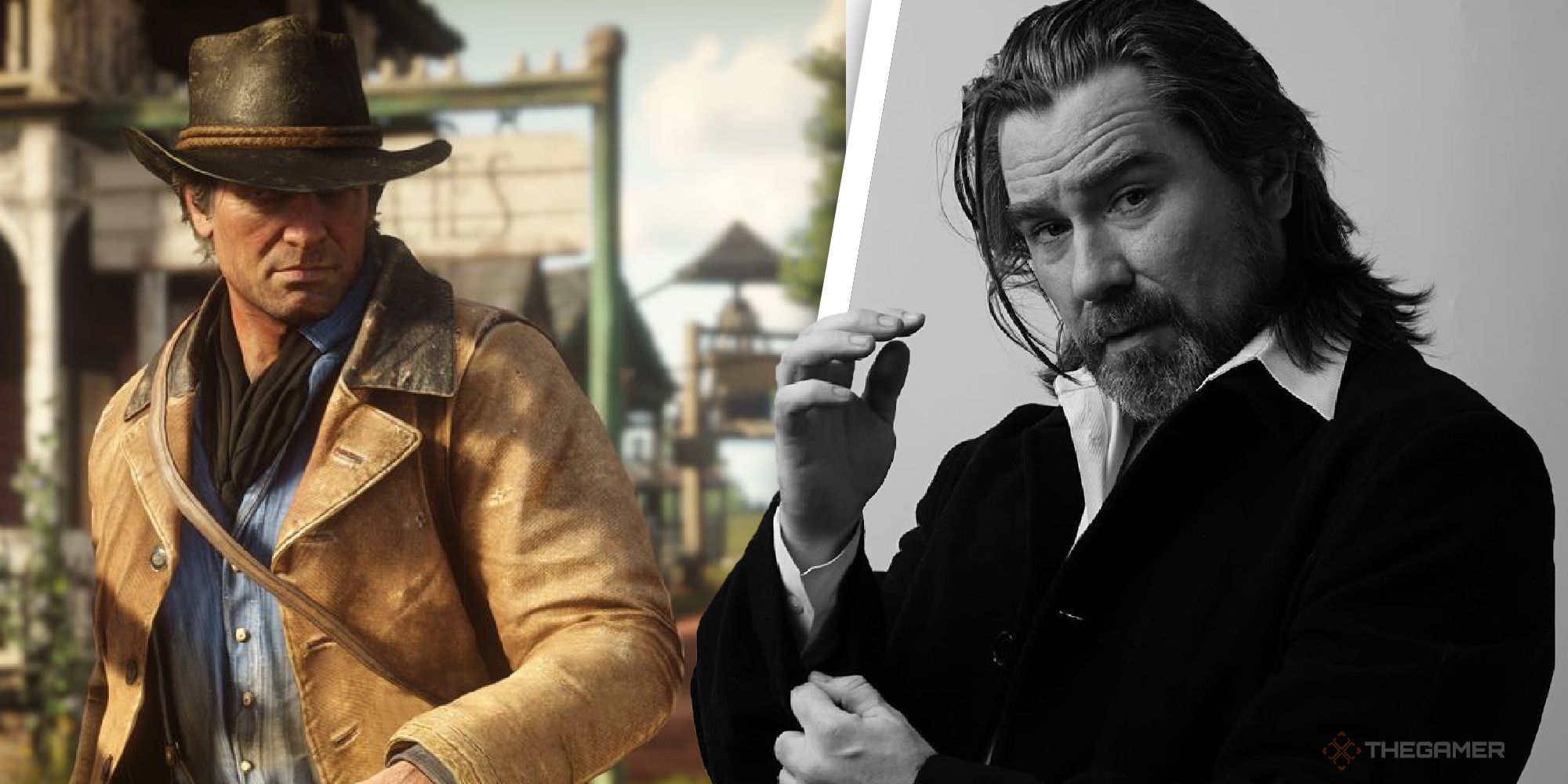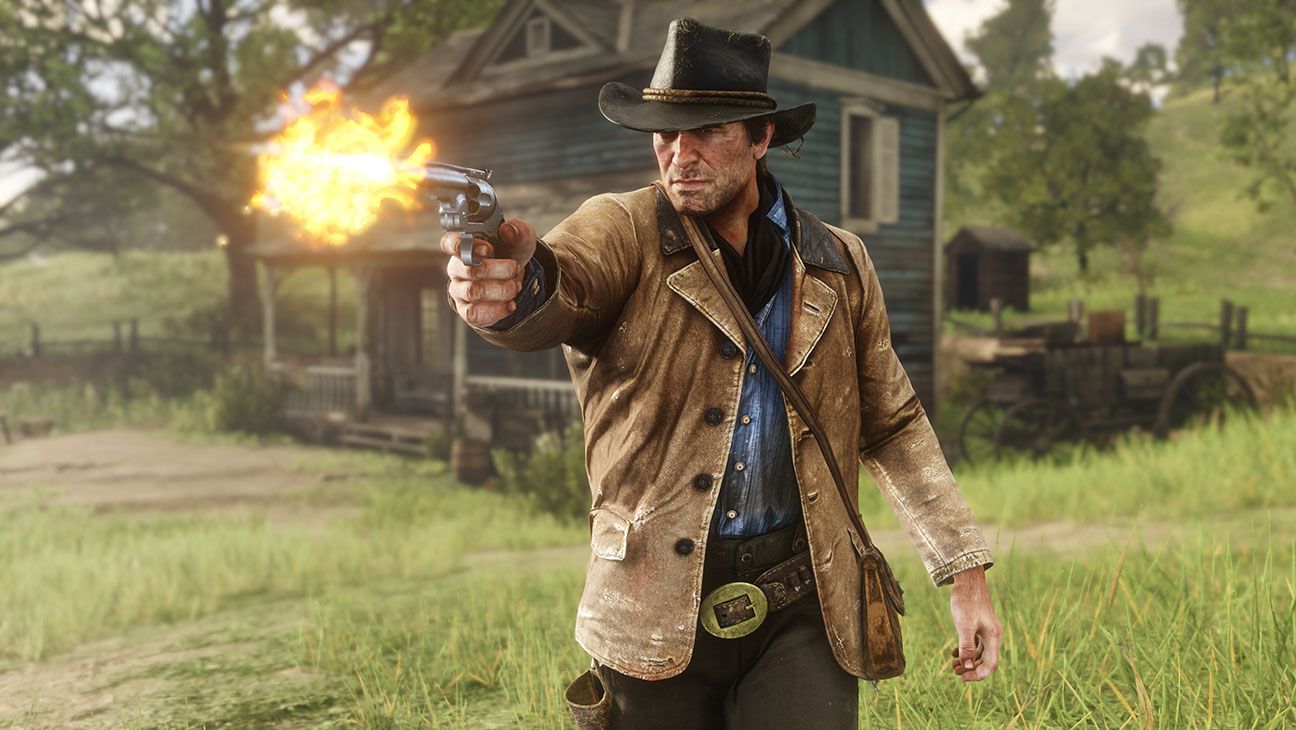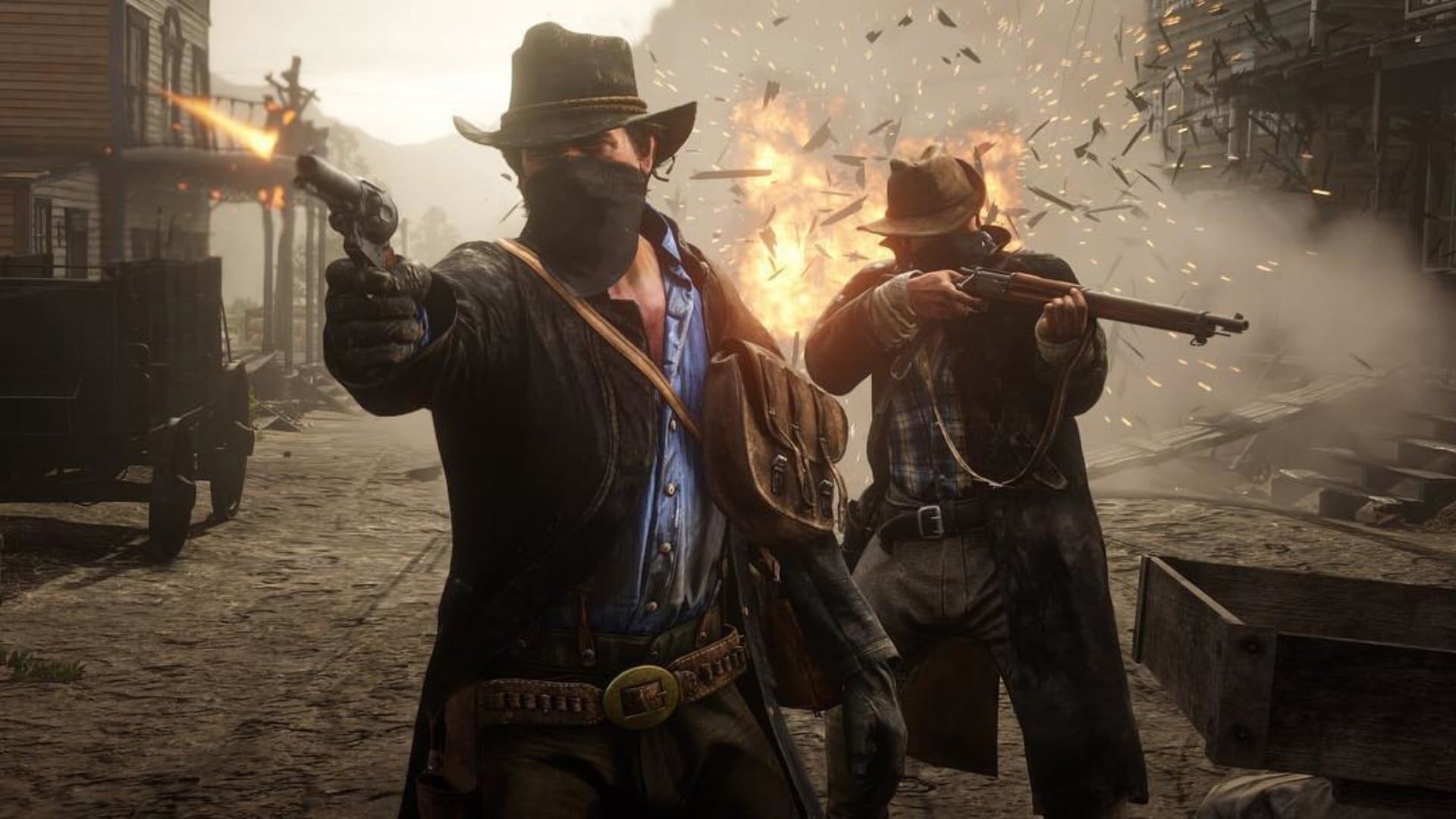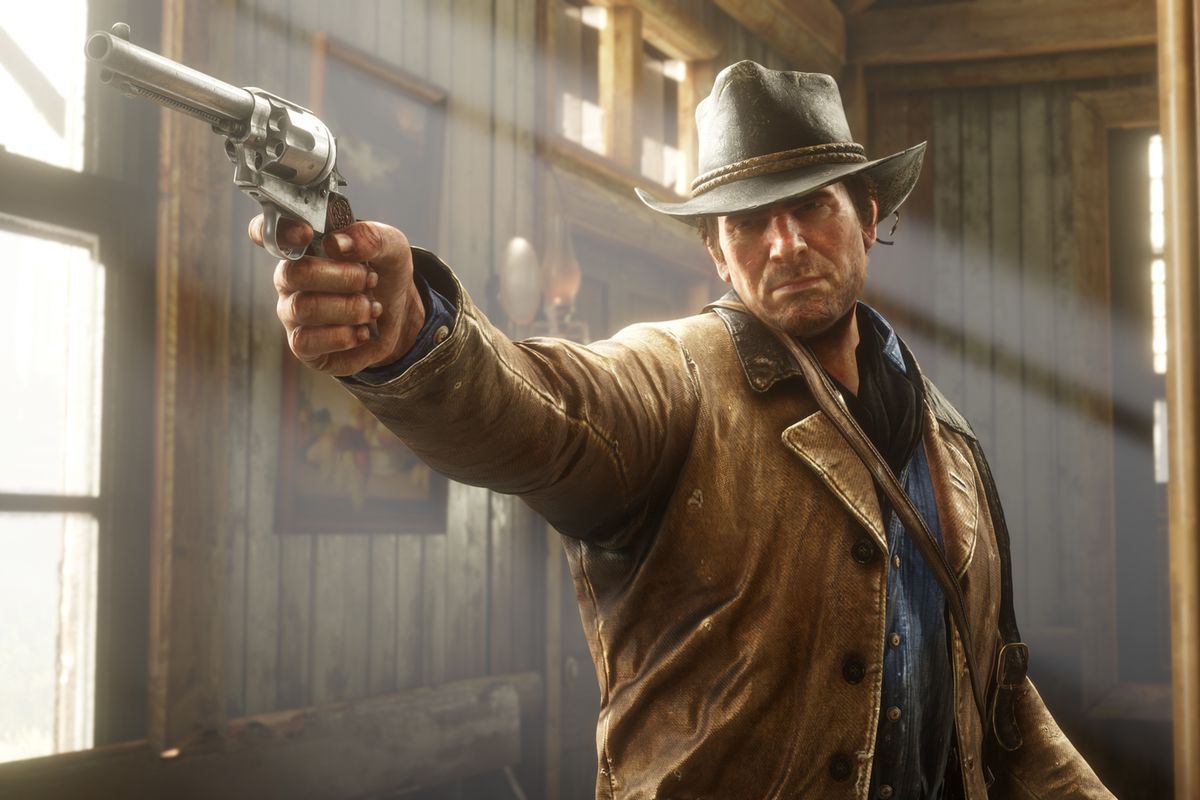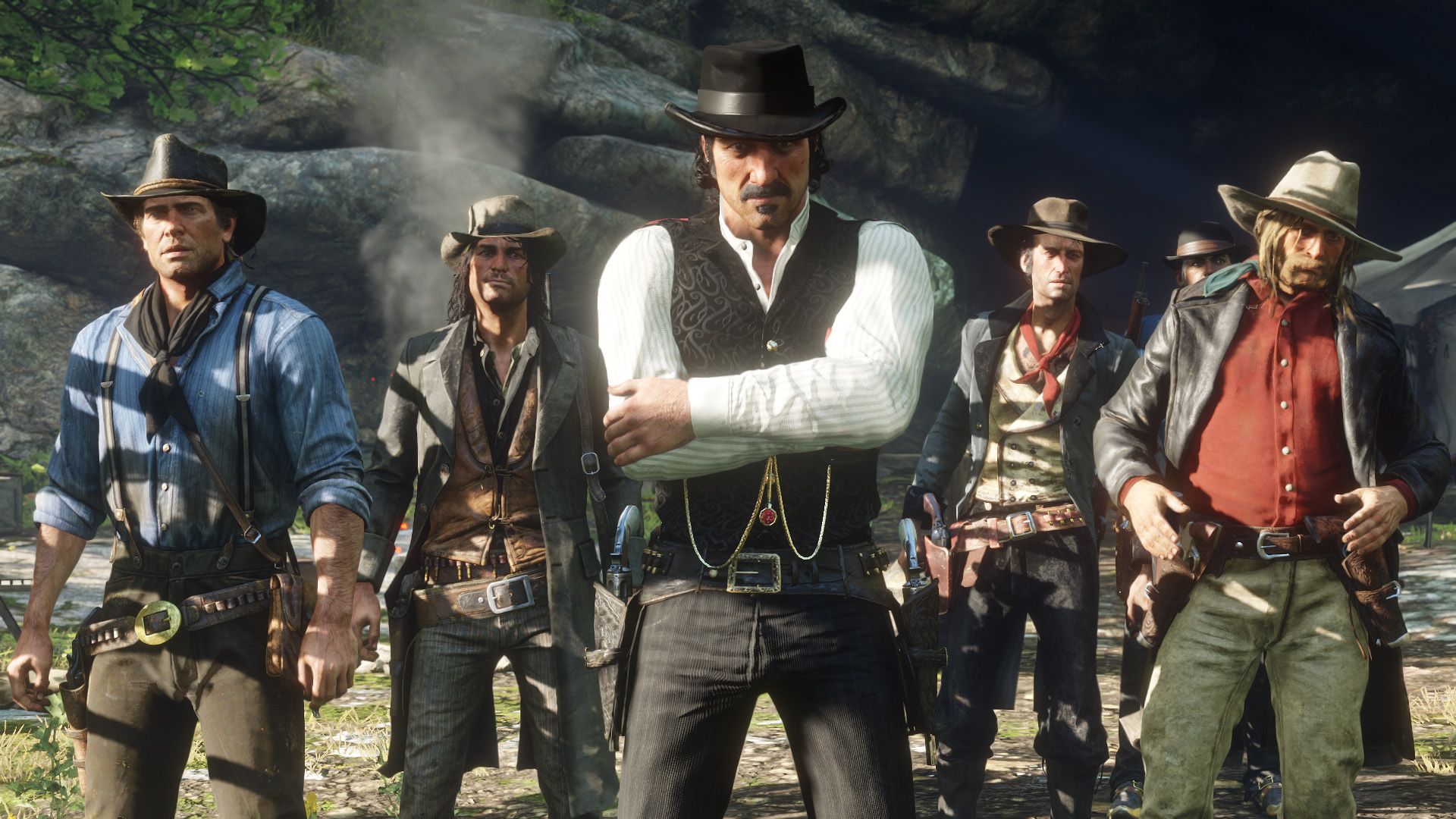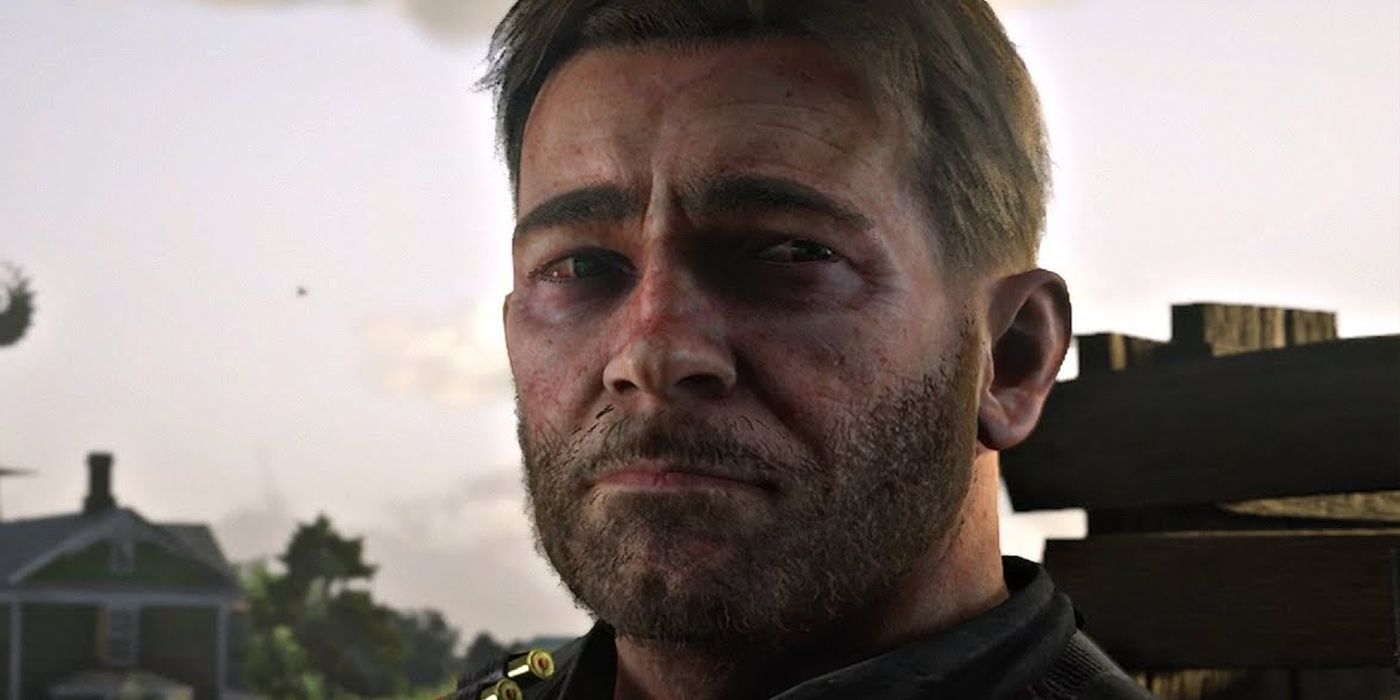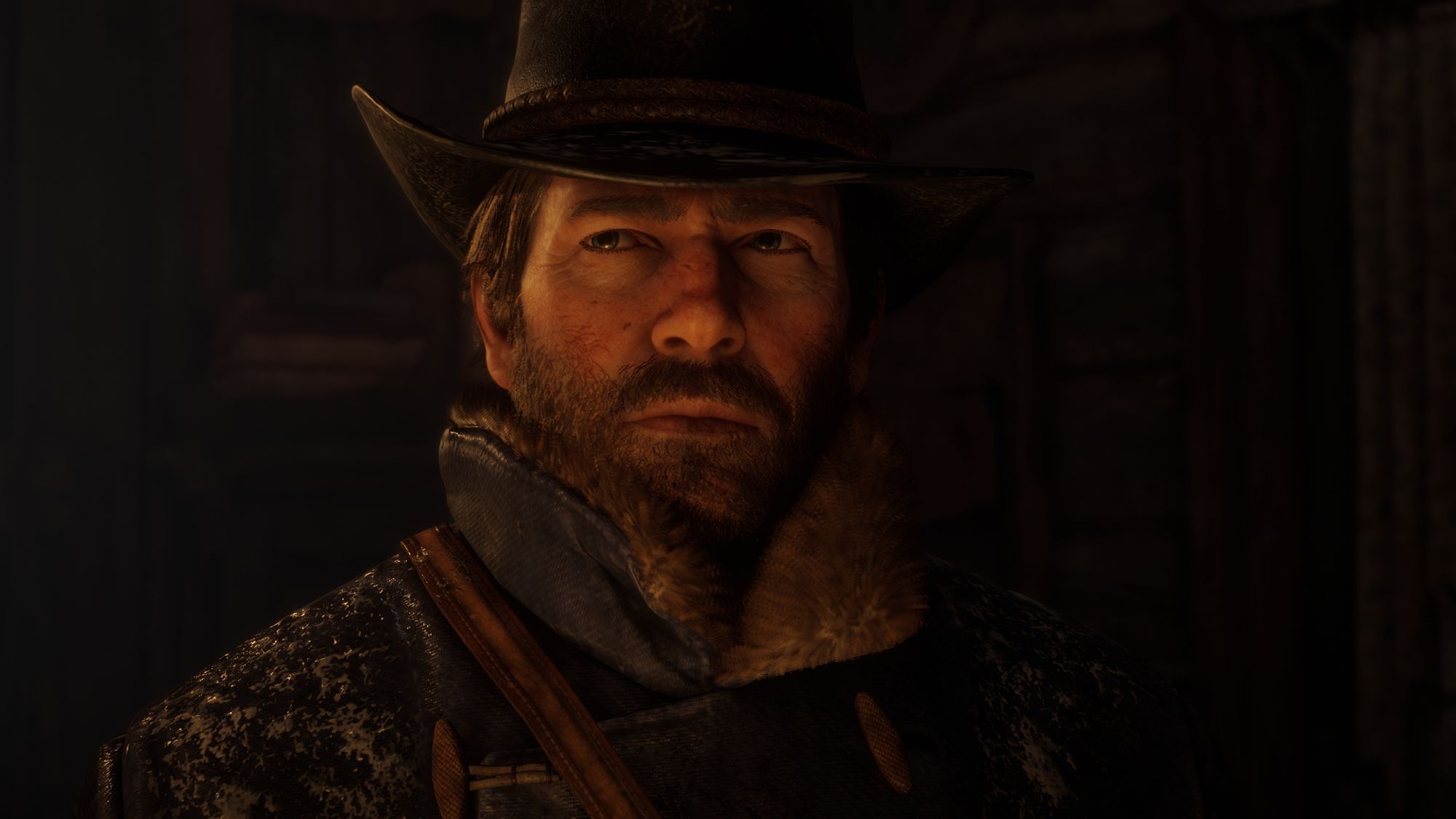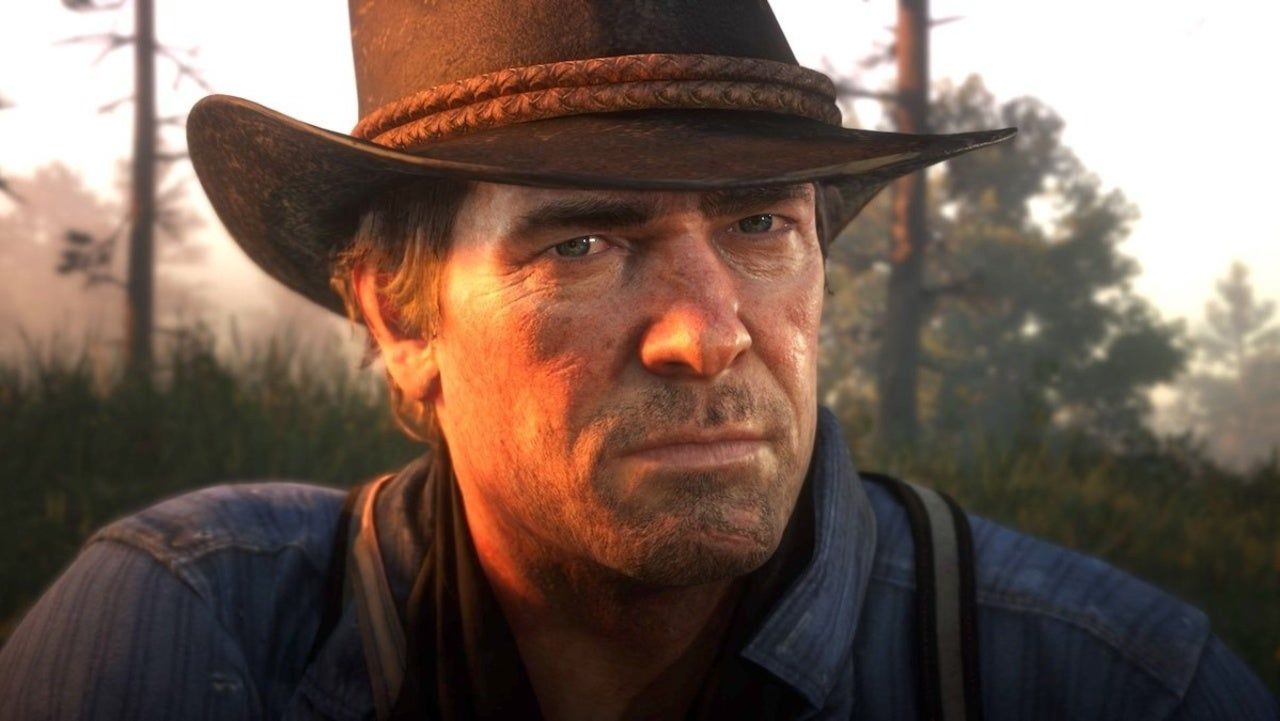Ever since moseying onto the world stage in October 2018, gunslinger extraordinaire Arthur Morgan has carved his name into cultural memory like a tomahawk through a skull. However, spearheading a game - nay, a phenomenon - as sprawling and ubiquitous as Red Dead Redemption 2 is no easy feat. On top of NDAs spanning half a decade, following in the bootprints of the feared and revered John Marston, and delivering a sincere and multifaceted performance centered around the power of fragility, it’s safe to say Arthur actor Roger Clark had his work cut out for him from literally day one.
It seems apt, then, to start exactly there: day one. Clark was not told a whole lot about what he was auditioning for when he first applied for the role. Aside from being informed it was going to be performance capture for a video game, all he was told to do was show up wearing a pair of cowboy boots. There were no sides - sections of a script that actors must learn prior to an audition - provided in advance, either. On top of its famous secrecy, Rockstar clearly wanted to see how fast the actors could learn lines.
“I can tell that was definitely intentional on their part, especially for some of the dialogue,” Clark tells me. “We would always ask for it as soon in advance as possible, and maybe about a year or two in, I realised sometimes they don't write it until ten or 15 minutes before you show up. It’s a bit of a tricky one - how much do you want to keep your talent in the dark? And when does that start to infringe on their performance? It’s also worth mentioning though that a lot of the time the studios are not purposefully withholding important plot and character points from the actor. Sometimes those things simply haven’t been conceived or confirmed from on high yet. Scripts are often a lot more fluid with gaming than they are in other mediums because the cost of reshooting or adding things down the road isn’t as significant as it is on, for example, a film set. I understand there's a need to be competitive and for NDAs and whatnot, but if you barely trust the talent with the big narrative picture, maybe you need to reassess the way you’re telling stories. The performers need to know what they're doing and why they're doing it to come up with a more accurate, truthful performance.
“Personally, I knew what we were doing. But when I hear of other studios not disclosing major components to their performers, it makes me sad. I think it demonstrates a lack of trust, and if you don't trust each other, you're not going to come up with your best work. That's just a fact. Of course, the other side of the coin is that actors regularly make blunders on social media, myself included, so all of these secretive measures to ensure confidentiality are often necessary. Finding a balance is hard. Rockstar always answered all questions I had to the best of their knowledge and I was very grateful for that.”
For clarity, Clark is speaking to industry practices at large here, and does not think these issues apply to his own experience with Red Dead Redemption 2. In fact, for a game with NDAs as strict as this one, being able to work in a more contained environment also had its benefits.
“It's hard, especially in the long-term, if you're working on a very long project not being able to talk about it with anyone,” Clark says. “You get paranoid if it's something that's really anticipated like Red Dead. Sometimes you get nervous about social media, especially if rumours are starting to point in your direction. But it can also be very helpful, because we were working very much in a tunnel atmosphere and we had the horse’s blinkers on. I think that lended us a focus that we might not have had if we were working in a much more public environment.
“For example, people may have had trouble with fans hanging outside where we shot and stuff. I can only imagine what problems that would have brought. But yeah, Mick [Mellamphy, Sean actor and personal friend of Clark’s] showed up and I was like, ‘Hello, welcome,’ and he's like, ‘Holy shit, this is what you're doing.’ And it got to the point where like, three or four years in, people were saying to me, ‘Oh, you're still working on that video game, Rog.’ They were starting to think I was full of shit.”
Evidently, Clark was not full of shit. Despite having to keep his role hush hush, he was at home replaying Red Dead Redemption, which he had coincidentally rolled credits on around a month prior to auditioning. This raises an intriguing point: Arthur Morgan is not the protagonist of the inaugural Red Dead Redemption game. Clark was going to have to fill the enormous cowboy boots of John Marston actor Rob Wiethoff.
“Had I been brought into the public knowledge a little bit before the game came out, I can only begin to think how that may have affected my performance,” Clark explains. “People [would be] starting to think, ‘Who is this Roger Clark? He’s shite.’ If I'm reading that, and I'm still a year out from finishing my work, who knows what impact that would have had? I’m glad we had the tunnel vision we had, but again, at the same time, I don't run a game studio. The secrecy for a video game seems to be on a completely different level. I mean, I know for a fact our NDAs were more strict than Disney’s or Marvel’s.
“Having had the luxury of working with Rob, I knew that I was gonna have to do my own thing. You can’t out-Marston John Marston, so I was more focused on my own journey - I just tried to get John out of my head. A lot of the scripts helped that too, because it's a different John Marston. He hasn't learned a lot of what we see in the first Red Dead Redemption, and I thought Rob portrayed that beautifully: those little details of this younger, slightly more immature guy. That made interacting with him a little easier too - it didn't feel like trying to give the John Marston a hard time. This isn't the John Marston we see in Red Dead Redemption. He’s younger and greyer around the edges. The writing reflected that and Rob just took it and went with it, so it was easier for me to become less concerned with John Marston and focus on Arthur.”
In creating this unique character, Clark drew from a wealth of different sources. Some might seem typical - Red Dead Redemption 2 is a Western, so it’s unsurprising to hear Clark cite John Wayne as an influence. Meanwhile, Clint Eastwood had a much smaller impact on Arthur - The Man With No Name, Eastwood’s iconic protagonist in Sergio Leone’s Dollars Trilogy, is specifically known for barely saying anything at all, which is at total odds with Morgan’s far chattier disposition. A more unpredictable inspiration came from Toshiro Mifune, the 20th Century Japanese actor famous for starring as a samurai in films by Akira Kurosawa - in Clark’s own words, “He was amazing because he could be funny, he could be stoic, he could be a million different things in the space of five minutes.”
It’s become obvious over the last three years, however, that Arthur himself - or rather Clark behind him - has started to exert his own influence on how characters are written and performed. For Clark, this is directly related to something Arthur has that a lot of other modern leading men - at least in video games - don’t.
“I really liked his sense of vulnerability,” Clark tells me. “Showing a bit of fragility was one of the things that really attracted me to him. So many teenagers and young men played that game, and now having had the luxury of speaking with some of them, I know it gave them permission, in a way, to address their own fear, which is funny because more often than not one of the ways in which they retrieve those feelings is to immerse themselves in a video game. It's this ironic conundrum, the fact they're trying to escape their own feelings by immersing themselves in the game and then that video game teaching them it's okay to acknowledge their feelings. It's almost like therapy in a way, or at least that's what some of them have said to me.
“One thing I often hear fans saying is that it bonded them with their dad or their grandfather, because their grandfather can identify with Westerns - maybe not on Xbox or PlayStation, but they know Westerns. So many times I heard about generations bonding over Red Dead 2, like a 60-year-old dad saying ‘Create a file space for me, I want to play too.’ Hearing it bridged so many relationships - again, I think that may not have happened as quickly if the writing didn't address that vulnerability. Because the player identifies as Arthur. A lot of my work is done for me, as opposed to a film. You watch the lead in a film and you're not him, you're not responsible for their actions. But in a video game, you are them, and so it kind of draws you into the story a lot more. They feel more involved, at least when it's done well.”
That’s not to say recording performance capture for a video game is easy. Clark often had to act out multiple scenes in order to accurately reflect players’ choices as either an honourable or dishonourable Arthur. While that alone sounds tough, it’s also worth noting this wasn’t always possible - Clark often only had time for one scene, and so he needed to focus on playing an Arthur that was sufficiently ambiguous to be appropriate for both honourable and dishonourable archetypes while still being truthful to who this character is. In Clark’s eyes, there is an emotional core to Arthur that exists regardless of whether he chooses to shoot or save people.
“Even the dishonourable Arthur has a very strong loyalty to the gang,” Clark tells me. “The thing about Rockstar Games - they’ve always tried to maximise the freedom players can enjoy. I think the hint is in the name itself - this is called Red Dead Redemption. There are incentives to playing Arthur in an honourable fashion: you don't get as many bounty hunters after you, things in the store cost less money. I think they're definitely trying to steer you toward what they think will be the most rewarding narrative journey. But the fact that you can play him as a total bastard as well is testimony to Rockstar’s open-world ideology. The one thing [both sides of Arthur] have in common, I think it's a deep underlying loyalty. Dishonourable Arthur expresses that slightly differently than the way Arthur does, but they're both still him.
“There's a huge range in themes. It can be funny one minute and then the next thing you know you’re bawling your eyes out - I think that's the epicness the script is going for. The fact people believe Arthur in both situations is a huge relief to me. Because that's life, too - we have great craic in some moments of our lives and other times our lives are nothing but pure tragedy.”
Speaking of which, Arthur’s story - while warm and teeming with heart at times - is ultimately a tragedy. It’s important to consider this from Clark’s perspective, too. You could be playing Red Dead 2 and experiencing events that are ostensibly half an hour apart, but were actually recorded on either side of a four-year gap. One specific part, however, was recorded right near the end of Clark’s five-year odyssey through the virtual Wild West: Arthur’s death.
“We first started doing the deaths about four years in,” Clark says. “There are four different deaths for Arthur. We did the first one as high honour going out to help John. I knew this was coming for four years, but I never knew the exact details until about two weeks before, so I was pretty nervous. It was weird and nerve-racking, because I spent so long with this character knowing they were going to die, and now it's time to start doing deaths. I had been given such a long time to get used to saying goodbye, but it still didn't make it easier. When we started working on that in the beginning of the fifth year, it was quite a moment.
“I guess a lot of [the ending’s power] has to do with the length of time you spend with Arthur, the fact you’ve known this has been coming since you got back from Guarma and you got that diagnosis in Saint Denis. The writing has been on the wall for some time. And by this point, you're probably 50 hours in, you and Arthur, so you've become attached to him. I also think what helps too is the fact the cast had very much become a gang of themselves at this point. We had all been working together for three or four years. Me and Rob became like brothers in real life as well as in the game. I'm glad we didn't do it at the beginning of the five years, let’s put it that way. I think the fact we waited for the end conveyed the gravity of it all.”
Is it ever truly the end, though? Red Dead Redemption 2 is already a prequel to Red Dead Redemption - while it’s true that lightning rarely strikes twice, if there is any one studio with a well-placed rod on its roof, it’s probably Rockstar. I ask Clark about his thoughts on whether or not Arthur could ever make a comeback.
“We all know what happens to him,” Clark says. “I don't know how that would work, unless they kept going back in time. I don't want to speculate, but it was a wonderful contract for me and the creatives at Rockstar Games are wonderful people to work with. If they were to call again, I would certainly pick up the phone. But I don't know where it could go from here. I don't think it would work as a film, at least not in the same way. I don't know if it would work as a television series either. And if it did, the mass public at large would be very excited about which A-lister should play Arthur Morgan. Which I get, but at the same time, it's like, ‘Oh my god, you did such a great job, let's give your job to someone else.’ I think a lot of that is also a lack of understanding what performance capture actually is. So many people still think what we did was voice acting, which we did for maybe about ten percent. But I don't know. Revisiting Arthur Morgan - would they go back and do another prequel? Because one thing Rockstar Games don't do - they don't stick to the same format. They always surprise.”
Clark is right - many players today still aren’t aware of the important distinction between performance capture and voice acting. A lot of video game actors are often referred to using ‘voice actor’ as a blanket term, but in the modern triple-A scene especially, this is not always the case.
“Before Red Dead came out, I was very much a working no-name actor,” Clark says. “Nobody knew who I was. And that's still pretty much the case, although Red Dead has definitely heightened my exposure among the gaming community. I didn't know what to expect, and then of course COVID threw a spanner in the works as well. But Red Dead definitely did open the doors for a lot of opportunities. Funnily enough, most of those opportunities were in voice acting, which, ironically, people say, ‘You're such an amazing voice actor Rog,’ when I don't think I am, because I am not the voice actor you all think I am. I haven’t done it as much as you all think I have. It's like saying this plumber built the most beautiful house ever in the world - I just did the pipes, man, you’ve got to talk to the carpenter about that. But ‘No, we want you to build this table.’ No, I'm a plumber. ‘But you built this house, so you gotta do this table for us.’ Okay, fine.
“I think voice acting is just as valid and important as performance capture. The two of them are equally different. The reason I think it's important to specify that difference is because of accuracy. If you keep hiring me as a voice actor because of what I did on Red Dead 2, I can't guarantee that you're going to be pleased with the results, because voice acting isn't what I did in Red Dead. There's a huge difference between film actors and theatre actors and I think it’s no different between voice actors and people who are well versed in performance capture. Performance capture has more in common with film acting than it does with voice acting, and that's a fact. A lot of people like to disagree with me, but they don't have 20 years of experience in it, so I don't know what to really tell them. The reason it's important is because it seriously affects the performer’s future opportunities. If they're lucky enough to have done a role and have their work appreciated by so many people, but that work is fundamentally misunderstood, then that can't help but adversely affect their future opportunities.”
Speaking of future opportunities, Clark is currently hard at work on multiple projects, most of which are being kept under wraps for the moment. One thing he can reveal is that he’s playing an Irish rabbit in Ddraig House’s upcoming Lunafon, which is a bit of a pivot from the gruff and grisly Arthur Morgan. He’s also voicing a bunch of audio books. “I seem to be the history book guy,” he tells me. “I enjoy it immensely. My dad used to do newspapers in Ireland. For charity he used to record The Sligo Champion and we’d put it on cassette and mail it out. I feel like I'm following in his footsteps.”
Looking back now, it’s easy to see why Clark’s popularity has skyrocketed. But it’s not just the fact he played Arthur Morgan that led to this - it’s Clark’s own charisma, sincerity, and talent that make Arthur who he is. Given these two premises - that Clark has become extremely popular on social media and that there’s a lot of him in Arthur - I thought it was worth asking about whether the vulnerability and fragility we find in Arthur are important to champion on real-life platforms, too.
“If you had asked me straight out of the gate on Red Dead 2 I’d have had a different answer to the one I’ll give you now,” Clark says. “I think one of the reasons an actor can be successful is if the audience believes them in a role. If the audience gets to know the actor, the real actor, like they often do now on social media, the audience feels like they know the actor personally. I think that can compromise their ability to convey different characters to them. But one thing I did learn is that they don't follow me on social media to hear my opinions. They're there because they want to ask you to scream Lenny or see the guy who played Arthur. And that's fine too, but I'm starting to appreciate that sometimes you want to be able to keep up a little bit of a veil between yourself and your audience because if they get to know you too well it can compromise the roles they’ll believe you perform in later. At the moment, I mainly use my social media just to spread well-meaning good vibes and try to make people laugh - just tell a joke and make people happy.”
After over an hour of chatting all things Red Dead, I ask Clark if he has any closing thoughts - anything he wants to say about his five-year adventure with the Van der Linde gang.
“I was lucky enough to work with a huge pool of very talented actors, directors, and animators for a very long time,” he explains. “In a leading role, that is as lucky as you can get in this industry. And personally, I find the whole medium fascinating. I’ve seen it develop and explode in front of my very eyes throughout my career. The first time I did mocap was back in ‘06 or ‘07. Seeing the technological advancements since then has been fascinating - how that affects the actor's performance and has given us more freedom has been such a pleasure to behold.
“I just wanted to do more and more. I've always been in this profession. I never wanted to be famous, I never wanted to be a massive… Well, a massive roaring success, I wouldn't say no, but I never wanted stardom. I just wanted to be a working actor who was constantly challenged by the stuff he was doing. For five years, I had that every day. It was a wonderful experience - and a unique one, too. I was working in a medium [where] not a lot of people appreciate what can be done with performance capture until we saw The Lord of the Rings, until we saw Planet of the Apes, and dare I say it, until we played Red Dead Redemption 2.”

